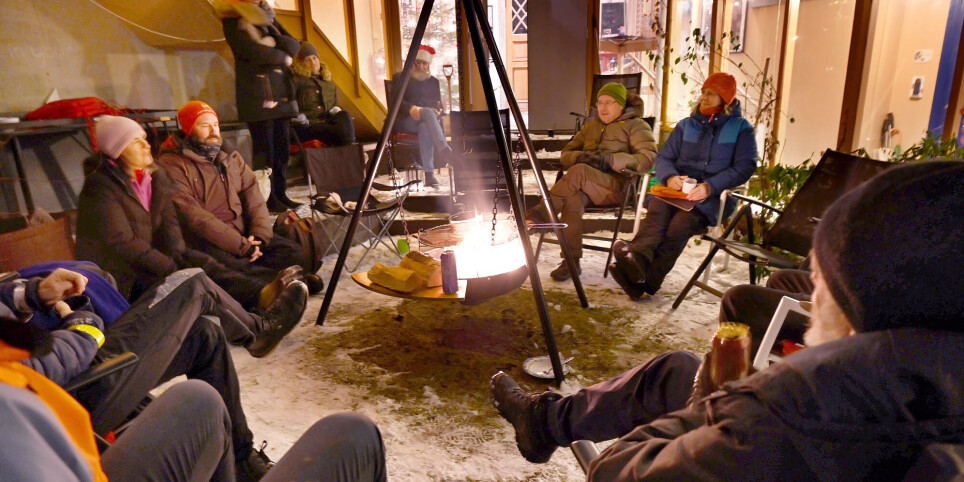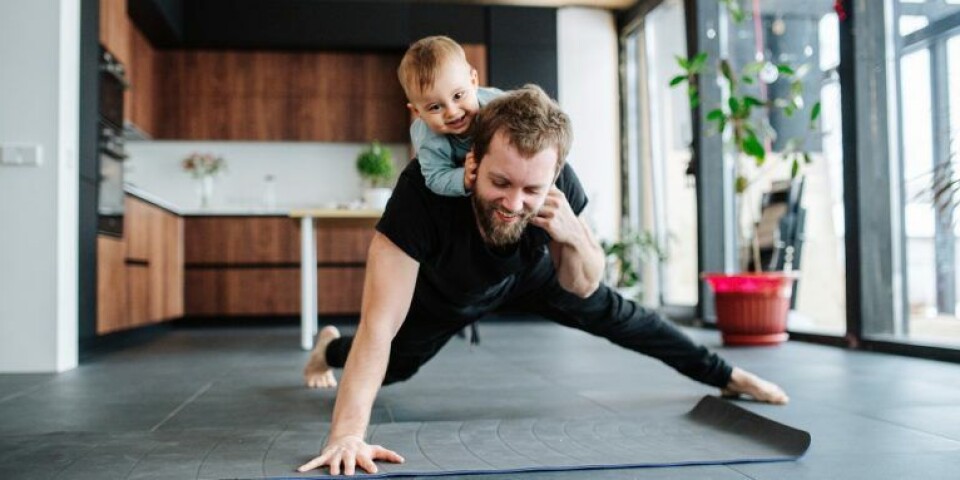THIS ARTICLE/PRESS RELEASE IS PAID FOR AND PRESENTED BY NTNU Norwegian University of Science and Technology - read more

Outgoing and structured people coped best with the pandemic
It looked like the Covid-19 pandemic might be a good time to be an introvert, but a large study now shows that extroverts handled the situation better.
When we were all cooped up during the pandemic, the media heralded the fact that it was a time for introverts.
There were no parties you felt you had to attend. You concentrate on work in a home office without colleagues to disturb you. There was home schooling. And any birthdays that could be celebrated were small and far between.
A large study now shows that those who are extroverted and have structured lives were the ones who coped best with the pandemic.
Better mental health
“People who are extroverted and structured probably found creative ways to cope with everyday life, which meant that they were able to maintain better mental health than many others,” Stian Solem says.
He is a professor of psychology at NTNU.
He collaborated with psychology student Espen R. Lassen at NTNU and the research group behind the national survey BRY.DEG2020 (TAKE.CARE2020) to investigate how different personality traits either helped people cope with the pandemic or made the situation worse.
More than 5,000 Norwegians were asked how they were doing a few weeks after Norway closed down at the onset of the pandemic. Eight months later, they were asked the same questions.
Many studies during the pandemic have examined mental health, but the researchers at NTNU used personality traits as the basis for their analyses.
Foundation of our personality
In short, personality traits are the foundation of a person’s personality. Personality traits are not thoughts and feelings, but are the basis for what a person thinks and feels.
The researchers applied the most common way of checking personality traits, which is to examine how a person scores on a continuum of the ‘Big Five’ factors:
- extroversion
- agreeableness
- neuroticism
- openness
- conscientiousness
The main finding of the study was that individuals who were experiencing mental health difficulties at the beginning of the pandemic still had them almost nine months after the pandemic broke out.
“Neurotic people coped worst with the pandemic. This was what the researchers expected, based on other studies of personality traits and challenges. One piece of advice is to not spend too much time worrying and brooding,” Solem says.
Over time, structured and extroverted people coped better with the pandemic than people who scored low on these personality traits.
“A lot of people are really adaptable,” Lassen says.

Minimise ruminating time
The researchers were not surprised that extroverts coped best with the pandemic.
“It’s well known that people who are extroverted generally have easier access to positive emotions than people who are introverted. Extroverts generally have fewer psychological problems than introverts,” Solem says.
Being structured also proved to be a quality that made the pandemic more liveable.
“People who score high on structure will generally make realistic plans, have the self-discipline to implement them and be able to create routines for satisfying everyday living. They probably put this quality to good use during the pandemic,” he says.
So what should people do if they are prone to worry and the world presents great challenges?
“A good method is to minimise the time you spend ruminating. Spending a lot of time thinking and reflecting negatively about yourself and the future can be tough in the long run,” Lassen says.
References:
Lassen et al. Personality traits and hardiness as risk- and protective factors for mental distress during the COVID-19 pandemic: a Norwegian two-wave study, BMC Psychiatry, vol. 22, 2022. DOI: 10.1186/s12888-022-04237-y
Kobasa, S.C. 'Stressful life events, personality, and health: An inquiry into hardiness', Journal of Personality and Social Psychology, vol. 37, 1979. Abstract.
Read more content from NTNU:
-
Why is nothing being done about the destruction of nature?“We hand over the data, but then it stops there"
-
Researchers now know more about why quick clay is so unstable
-
Many mothers do not show up for postnatal check-ups
-
This woman's grave from the Viking Age excites archaeologists
-
The EU recommended a new method for making smoked salmon. But what did Norwegians think about this?
-
Ragnhild is the first to receive new cancer treatment: "I hope I can live a little longer"





































